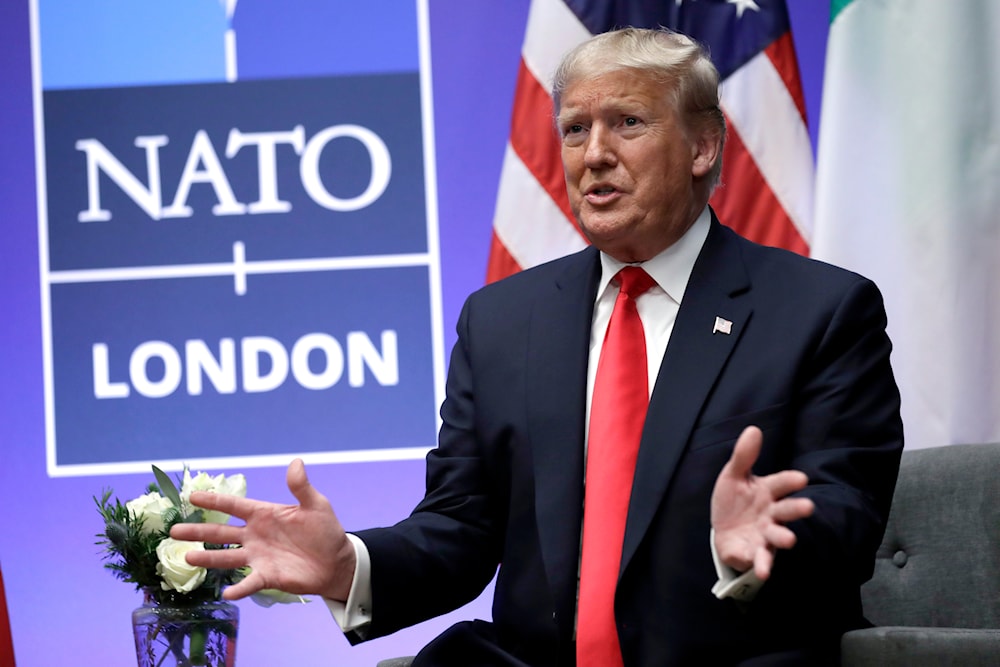US to drop out of future NATO military exercises in Europe
The United States' decision comes amid Trump's increasing dissatisfaction with the alliance and European leaders, who seem to be intent on sustaining the war in Ukraine.
-

President Donald Trump speaks during the NATO summit, on December 4, 2019, in Watford, England. (AP)
The United States reportedly informed NATO of its decision not to participate in any military exercises in Europe beyond those already set for 2025.
The Swedish Expressen media outlet said the US decision does not include the exercises that have already been planned and agreed upon to be held in 2025, forcing NATO countries to plan exercises without the participation of the largest country in the alliance.
The decision comes after US President Donald Trump repeatedly called out countries in the alliance for failing to meet the goal of spending two percent of the countries' respective GDPs on military, stating that the discrepancy burdens the US unfairly.
Trump considers major changes to US NATO participation
The United States President has been considering implementing major changes to the US policy toward the North Atlantic Treaty Organization by putting conditions on American military support to NATO countries, according to US officials on March 7.
A crucial change that's being discussed is restricting US defense commitments to NATO countries that allocate two percent of their GDP to military spending, undermining NATO’s core principle, Article 5, which considers an attack on one member an attack on all.
Trump previously proposed on January 7 that NATO countries raise their defence spending to 5% of their GDP, a suggestion that faced opposition from the alliance, which deemed it politically and economically unfeasible.
The German Chancellor Olaf Scholz expressed his opposition to the US president's suggestion, saying, "That's a lot of money," while emphasizing that the military alliance has a "very clear procedure" regarding member contributions in an interview for Focus Online on January 9.
Scholz explained that reaching a 5% target would require Germany to allocate around €200 billion annually, a figure far exceeding the country’s current federal budget of €490 billion, adding that this is why he believes it is better to focus on the path long agreed upon by NATO.
The German opposition leader, Friedrich Merz, echoed Scholz's sentiments, stating that Germany will increase its military spending, however, it will not aim to meet Trump's set target of 5% of Germany's GDP, dismissing it as irrelevant.

 2 Min Read
2 Min Read









